Other Comments: 0 Nov 07, 2022
Note: Do not read this article on an empty stomach
The influences of Oriental, Mediterranean and Western cuisine have affected today's Bosnian cuisine, which we are always happy to turn to when we intend to treat ourselves to a culinary pleasure.
Although some dishes originate from Turkish, Austro-Hungarian, Arab, Jewish cultures and cuisines, as this country was under foreign influences for a long time, Bosnia left its own mark on each dish and made its culinary offer very different from Turkish, Arab and other cuisines.
The most delicious gastronomic symbols of Sarajevo, and thus of Bosnia and Herzegovina, are well known to the inhabitants and visitors of the Balkans: kevapi, sarma, burek and traditional delicacies, baklava, tufahija, šape (paws) and many others.
A walk through Baščaršija will enchant you with food scents. Its streets perhaps mostly smell of kebabs. Some say the most famous dish, the culinary brand of this country, kebabs, originally came from Turkey back in the 20th century, but local chefs perfected and adapted them so much that they created their own authentic specialty. According to the recipe, kebabs are served inside a juicy bun, which is not cut all the way. Onions, cream or ajvar are recommended as a side dish.
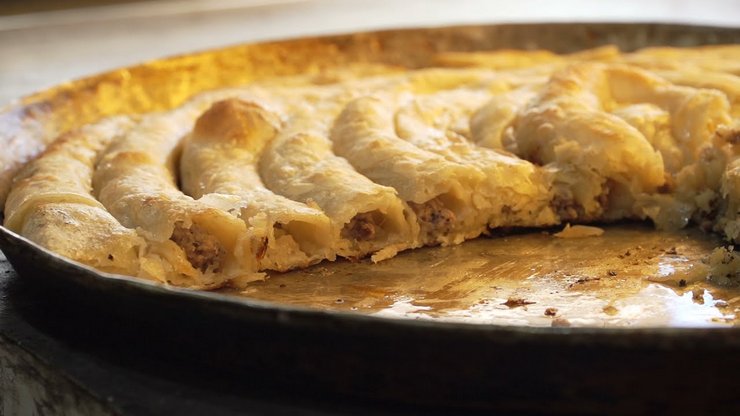
Bosnians have explained it many times - a pie is made with cheese, potatoes or greens, but burek is with meat. Burek is traditionally prepared under sač (a large metal or ceramic lid), which gives it a special aroma, and it is most often served with yogurt to reduce the fat.
Sarma is an original Turkish dish that is prepared in numerous ways, especially in the east and southeast of Europe. The basis of the dish is ground beef, which is used to fill sauerkraut leaves. Sarma is left simmering for a long time with the addition of dry meat, onions, red pepper powder.
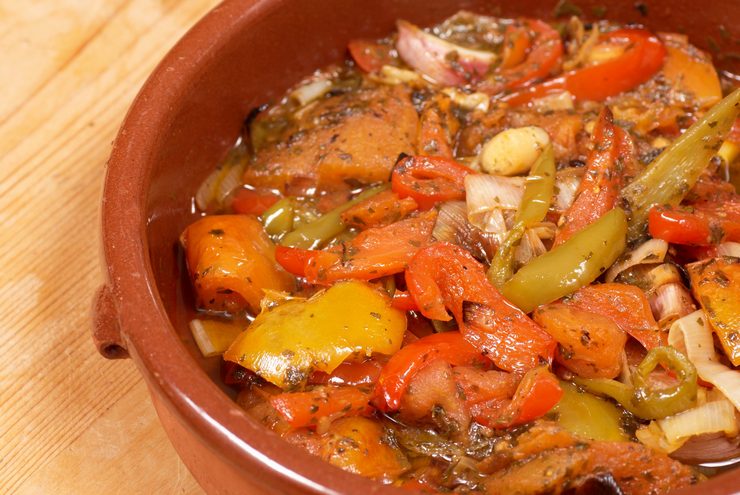
When you come to Sarajevo, along with ćevap, burek under sač and sarma, you must try other specialties of Bosnian cuisine. One of the most famous old dishes that is also prepared today is the socalled Bosnian pot. It is prepared in an earthenware (terracotta) pot for up to six hours on low heat. It gets its true taste and aroma when a larger quantity is prepared, which is the way this dish is traditionally prepared. Bosnian pot is associated with the diet of Bosnian miners, and according to tradition, it is not served in smaller dishes or plates, but each person serves themself directly from the pot. It is made from beef, potatoes, red onions, garlic, green beans, carrots, parsley, celery, tomatoes, white wine and apple cider vinegar. However, people usually say that Bosnian pot is prepared from everything that is found in the kitchen.
They say that you haven't been to Sarajevo if you haven't tried veal under sach. Although it is prepared equally well in all parts of Bosnia, in Sarajevo they cherish a special recipe that consists only of meat, potatoes cut into large pieces, garlic and oil. Like all other typical Bosnian dishes, this one is cooked long and slowly, and in the end, you get veal whose taste and smell are stunning, and potatoes that melt in your mouth.
You should, of course, also try sogan dolma: stuffed onions that are usually filled with meat and smell amazing. In addition to the above, you won't go wrong if you decide to try okra, moussaka, pilaf, chimbur, different types of bread, pastries and scones. Are you hungry? Sarajevo direction 😊
You can't leave Sarajevo without first trying some of the traditional sweets.
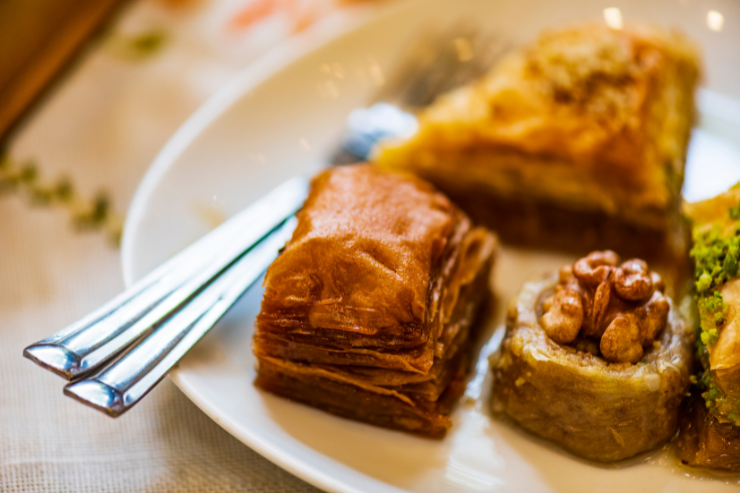
The first sweet association with Sarajevo is certainly baklava. It is traditionally made from walnuts, although it can also be made with other fillings, such as pistachios, almonds, and hazelnuts. Baklava is a traditional cake of both the Balkans and the Orient, and there are many assumptions about the origin of this delicacy. The oldest traces lead to Armenia, but there is evidence that it was prepared in Greece just as long ago. Recipes differ in details and methods of preparation from place to place, but the core of this candy is the same - a mixture of ground walnuts and sweet syrup gives a taste that we all know very well
Tufahijes have made their home in Sarajevo and have become its recognizable gastronomic content. Originally from Persia, the name of this sweet is derived from the word tuffah, which means apple in Arabic. Apples are boiled or baked in sugar syrup and filled with walnuts, almonds, hazelnuts.
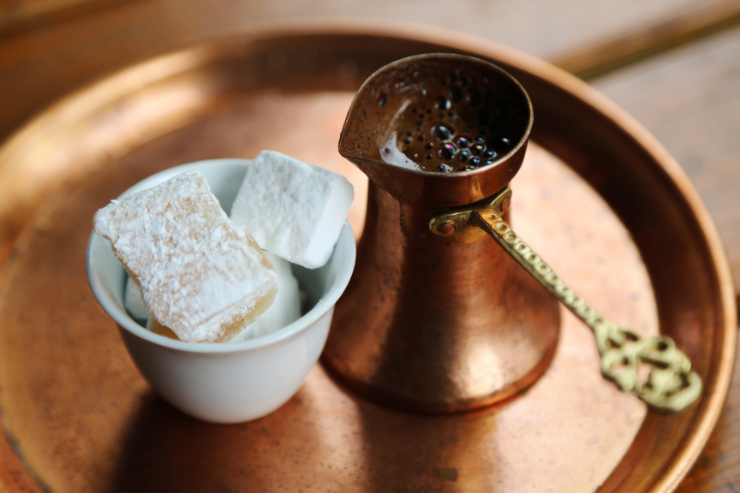
Along with sweets, you can drink Bosnian coffee, which is best drunk from a mug. The mug is like a coffee cup, but without a handle. It is held with the whole palm, which wraps around the cup, which warms the hands, and many would say the soul.
As an agency whose activity is the online sale of bus tickets, we offer you direct departures to Sarajevo from the following cities:
Podgorica – Sarajevo: https://busticket4.me/EN/1121-1309-132-0-0/0-1/Podgorica_-Sarajevo/
Belgrade – Sarajevo: https://busticket4.me/EN/1213-1309-132-0-0/0-1/Belgrade-Sarajevo/
Zagreb – Sarajevo: https://busticket4.me/EN/1371-1309-132-0-0/0-1/Zagreb-Sarajevo/
Mostar – Sarajevo: https://busticket4.me/EN/1276-1309-132-0-0/0-1/Mostar-Sarajevo/
Novi Sad – Sarajevo: https://busticket4.me/EN/1214-1309-132-0-0/0-1/Novi_Sad-Sarajevo/


 RS
RS  ME
ME  HR
HR  BA
BA  RU
RU  MK
MK  AL
AL  ES
ES  DE
DE  IT
IT  CN
CN  NL
NL  SE
SE  FR
FR 

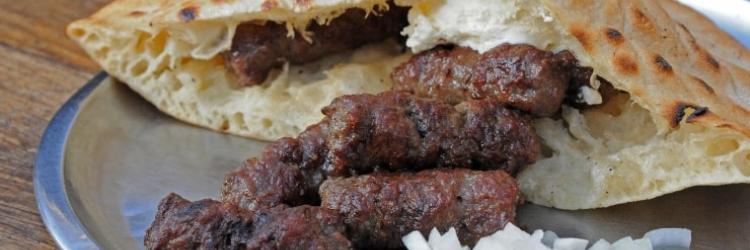




Write a comment